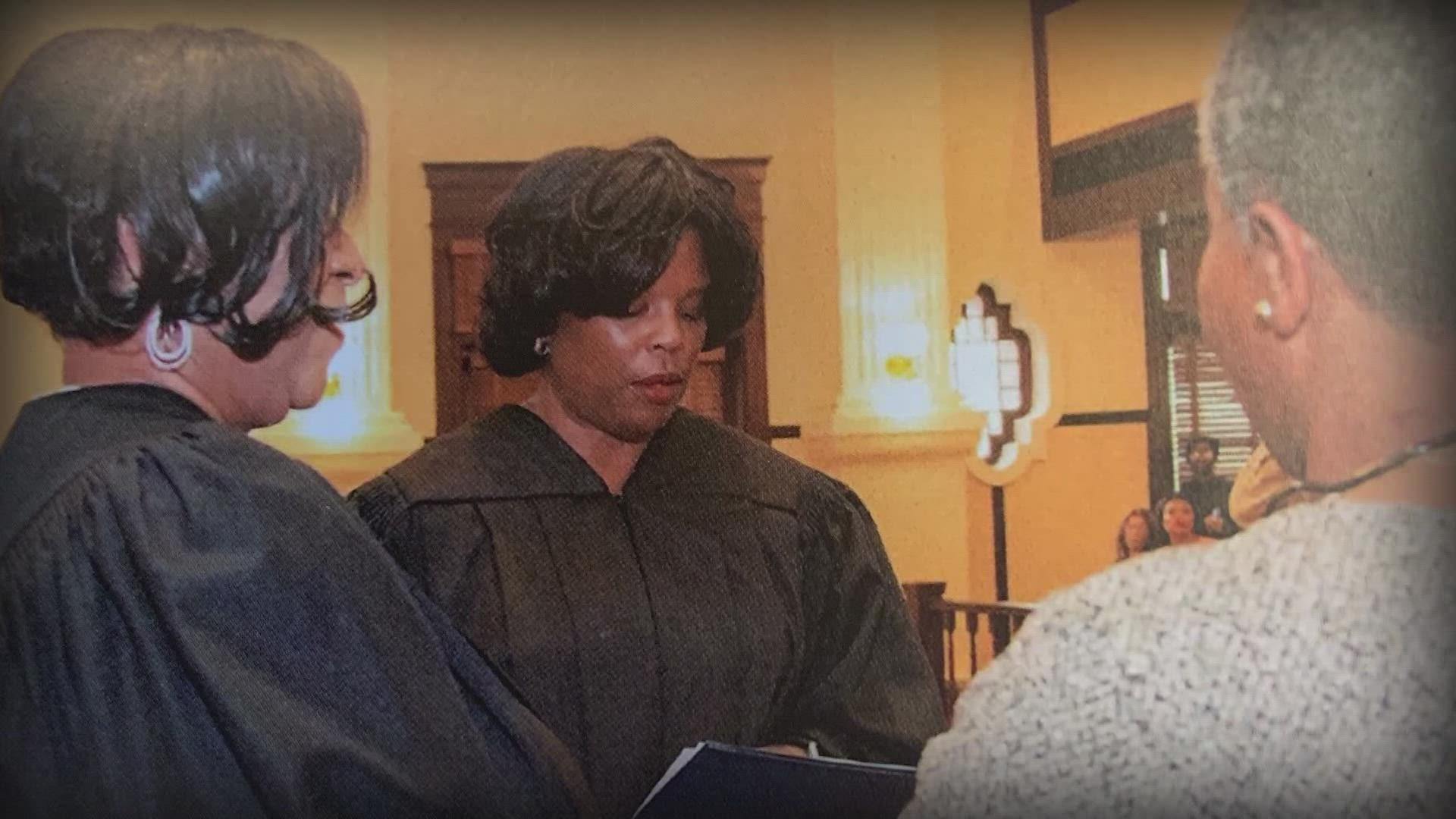SAN ANTONIO — In 2018, the honorable judges Yolanda Huff, Grace Uzomba and Stephanie Boyd pulled off the impossible. For the first time, anyone could remember, three Black women were elected judges at once and ever in Bexar County.
"When I ran, Marvin, in 2018, there was not a single elected Black judge in all of Bexar County," Huff said.
The County Court 12 judge said they didn't believe her when she shared that with voters.
"We've never had more than one Black judge on the bench at any given time," she said. "So to have three, that was truly historic."
Boyd, a St. Mary's Law school graduate like Huff and Uzomba, saw women judges in Bexar County, but none looked like her in adult court.
"I'm the only African-American judge in felony court for adults," Boyd said.
Uzomba, a military retiree and self-proclaimed overachiever, said she evolved into practicing law. Her Nigerian heritage made her rise to the bench in County Court 2 an especially rare achievement --- visible enough to inspire, she said.
"If you see it, you can believe it, and you can believe that it's achievable," she said.
The three acknowledge most voters may not even reach or know their names are on the ballot in Texas, where judges are elected. And most voters may not realize a judge can have more impact on their daily lives than the president of the United States.
"Somebody in your family is going to get a divorce, have a civil case, go to jail, need a bond a set," Huff said.
They advocate for more diversity on the bench. St. Mary's Law School Dean Patricia Roberts agrees that considering judges from a nontraditional background is important.
"Where we find our judges should be a pool that is expanded," Roberts said. "The experiences that they bring to the bench should also be more expansive."
Roberts said women make up more than 50 percent of law school students, but only a third who enter the profession become judges.
"That doesn't seem to be the right balance," Roberts said.
For 14 years, the National Association of Women Judges has partnered with Forster-Long, Inc. to heighten gender representation with an annual report called The American Bench.
The report reveals of the more than 17,700 state court judges in America, 34 percent are women. In Texas, the number of women judges in all courts is 34 percent. 43 percent of the state or district judges are women in the Lone Star State.
"Where I think we are lacking most significantly, though, is when we consider whether women of color are being appointed to the bench, and those numbers are woefully inadequate," Roberts said.
The honorable Judge Toni E. Clarke, President-elect for the National Association of Women Judges, has seen and worked for the progress of greater diversity on the bench.
"I think the perspective is probably the same across the country, and that is very few women---very few judges of color," Clarke said.
Clarke said the process for judges varies from state to state. But strategically working the process may be a solution.
"It depends on who sort of has control over the process," she said. "It is as strategic as figuring out where you want to be on the bench. And what the process is in that locality."
Uzomba knew she wanted to get reelected but lost in the May primary. Some believe Black candidates are easier to knock off during an election, especially in a county with a heavily Hispanic and white population. And, if appointed, those same candidates may not have access to those in power.
"There are people who definitely think I don't belong here, period," she said.
Huff and Boyd must win in November to remain the only Black female judges elected.
"Children of color of Bexar County deserve to see themselves reflected in the bench," Huff said. "There's nothing wrong with saying that. I mean, we want diversity on the bench. Diversity is a good thing. It strengthens us."
Boyd said San Antonio's population demands diversity on the bench. So far, achieving it remains a problem.
"I want to see male, female. I want to see all different races, all different creeds, because I think it just makes us so much better," Boyd said.
Roberts said when people enter a courtroom; they want to see judges representing the color of the community--all colors.
"Justice is blind, but life experience is not," Roberts said.
Uzomba said diversity on the bench is as essential as the beauty of wildflowers in the countryside. Different and necessary, she said.
"Society is represented by a diversity---many a myriad of people," Uzomba said. "Shouldn't leadership and positions of power and authority also be equally represented?"

